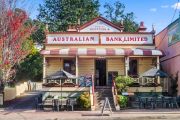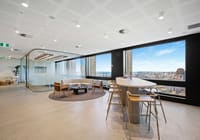
Price inflation is unsustainable experts warn
The limited availability of stock, a property investment market awash with cash and competing for limited stock, and the safety of bricks and mortar amidst a troubled global economic and political climate would maintain downward pressure on yields, the new head of m3property’s Victorian business has warned.
Luana Kenny says the Reserve Bank of Australia (RBA) cut rates three times in 2019 in a bid to boost a faltering national economy “whilst quite paradoxically the ASX200 had an outstanding year rising nearly 21 per cent, despite mixed company profit results”.
At the same time, property yields, with the exception of some retail stock, continued to firm from what were already historical lows.
“Investment money had to go somewhere. It was not getting any returns from bonds or cash deposits – both at record lows – and so it was deposited, if you like, in shares and property driving up prices and driving down yields,” Ms Kenny said.
Ms Kenny said that is not a sustainable state of affairs and that at some point there will be a fundamentals-based readjustment to values, and investors need to factor that in.
“Of course, there may be short term gains, but there is also inherent risk,” she said.
Ms Kenny said discounts to book value would continue to be seen across the troubled retail sector with some secondary stock still to come to the market as institutional players looked to manage continued retail headwinds.
“We are likely to see more discount-to-book-value sales over 2020 and those results are more likely to be seen across neighbourhood centres that are not so well located, have limited upside, and that have a higher weighting towards discretionary-spend tenancies,” Ms Kenny said.
She said investor activity and appetite for retail assets with a capital value of less than $50 million, supported by the low cost of debt, was likely to continue, but investors for larger capital value assets were unlikely to accept lower investment return hurdles.
“As long as property yields provide comparative value, they will continue to firm. That is going to happen over the office and industrial sectors in particular; however, retail property yields will most likely remain stable or continue to soften, particularly for secondary assets, with values also under pressure from declining income growth projections,” Ms Kenny said.
Paul Craig, chief executive of Savills Australia and New Zealand, said that the property market in 2019 has “fundamentally stood tall and demonstrated its resilience”.
“This low-for-longer interest rate environment means real assets and in particular real estate, will continue to be well sought after as investors chase yield,” Mr Craig said.
“In particular, Australia will continue to attract foreign capital supported by a cheap [Australian dollar], positive yield spreads to debt enabling positive funding from leverage and the lag effect of cap rate compression due to some scepticism of further runs in yield as we hit all-time yield lows/highs in valuation.”
Mr Craig said 2020 will see the commercial office sector continue to compress, supported by limited supply and developer discipline as CBD tenants begin to push their boundaries of space capacity.











